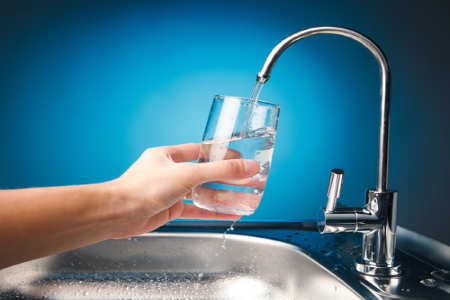Why Soft Water Is More Beneficial For Your Home

When you're a homeowner, you have a responsibility to keep up with repairs and maintenance around the house. You might be keen to learn that preventative measures are the easiest and most effective ways to make sure your home requires the least amount of repairs, saving you time and money in the long run. One example of a preventative measure you can take in your home is installing a water softener. This will reduce the damage that hard water can cause to your home's plumbing system, along with a few other helpful positives. Read on to learn more about soft water and how it's beneficial to your home.
What's The Difference Between Hard And Soft Water?
In a nutshell, hard water is water that holds a concentration of minerals within it, the most common being calcium and magnesium. These often come from the rocks in a groundwater supply, where most water typically originates from. The following can be evidence of hard water in your home:
- soap scum in bathtubs
- dry skin and hair, notably during winter
- fogged up glassware in the dishwasher
- calcium buildup in showerheads, faucets, etc.
At best, these things are annoying household gripes, but a few of them can cost you some money in repairs. If minerals build up in your home's plumbing system, some or all of your pipes could need to be replaced, breaking your bank account in the process. Similarly, dishwashers and washing machines could suffer from mineral buildup, meaning they could need to be replaced every few years.
In contrast, soft water contains little to no concentrations of mineral buildup, and as a result, doesn't cause as many issues with plumbing or water-using appliances as hard water might.
What's Your Next Move?
If your home has hard water in its plumbing system, your best solution is to get a water softener from a trusted water filtration company. Doing so will greatly lessen the chance of your plumbing system having mineral buildups within them, protecting your home and its appliances.
If your pipes suffer from mineral buildup on the inside, not only can it disrupt water flow, it can also lead to higher risks of leaks, cracks, or burst pipes.
To put it simply, water softeners exchange ions within your water. When hard water is filtered through a softener, all of the minerals are replaced by sodium or potassium ions, removing the minerals that could later cause problems in your plumbing system. Sodium and potassium are gentler than other minerals, meaning they won't cause soap scum or corrosion.
Other Benefits Of Installing A Water Softener
- Household surfaces are easier to clean. Things like soap scum and grime in your bath or shower occur because of a chemical reaction between hard water and soap. This reaction can also cause cleaning detergents in your washing machine or dishwasher to be less effective. Making the switch to soft water can make your dishes look shinier and your clothes a little brighter.
- Hair and skin are less dry. Since hard water can dry out skin and hair, you might buy more expensive products to try and combat such effects. However, switching to soft water will help skin and hair retain moisture so you don't have to buy that extra moisturizer or conditioner on your next drug store run.
- Appliances have a longer lifespan. Your pipes aren't the only things that suffer from hard water. Rubber parts on dishwashers, washing machines, and refrigerators can also become damaged from the use of hard water. These parts help prevent leaks, and if they get broken down by the high concentration of minerals in hard water, your appliances will be more likely to leak or need plumbing repairs.